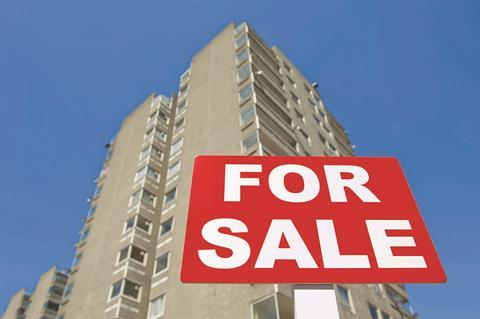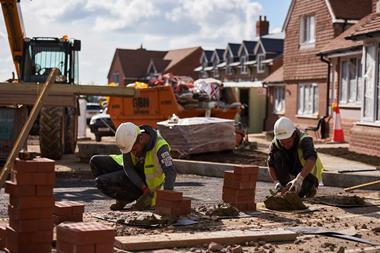When Russian harvests failed to meet production targets in the 1930s, former Russian premier Joseph Stalin simply increased the target for the next year. He was doing his bit; why couldn’t the farmers do theirs?

By contrast, the abject failure of successive UK governments to provide enough decent housing for the UK population has resulted in capitulation. Instead of increasing targets, secretary of state for housing Michael Gove has thrown them in the bin. Another election manifesto promise ditched.
Now, he claims, the entire housing provision system is “broken”. There is indeed a breakdown, which is the faith the housing sector or anybody else might have in this government’s interest in building homes. Five junior housing ministers in the past year tells its own story: that the political class no longer sees housing as important. It suggests that a Conservative government, in denial about its achievements in earlier generations, no longer thinks homeowning is an election winner.
The number of articles and speeches Gove makes on this subject is in inverse proportion to systematic activity intended to increase the number of homes. Take the recent announcement, as though it were some sort of triumph, that councils would be allowed to spend more of council house sale receipts on housebuilding, predicted to generate an additional 4,000 council homes. What a magnificent achievement! How relieved people on council waiting lists will be. A pledge to build 300,000 new homes a year is binned, but councils will be munificent new providers – hopefully not on the Croydon model, where unwise investment in housing helped to bankrupt the council.
In a foreword to a publication of essays from think tank Bright Blue, by people who have never built anything, Gove has the cheek to say: “We desperately need more homes to bring ownership within reach of many more people.” He does not say what he’s doing about it, because the answer is more or less nothing.

The publication contains mainly half-baked nostrums that do little to address the key issue: how do you get more homes built? Mortgages are still being granted and housebuilders still go about building for the market. What is missing is a sufficiency of supply, which is not a “crisis” as Gove claims, but a decades-old condition, since Conservatives decided they did not want to build homes for the poor, a policy Labour tacitly supported.
This is a failure of the political class, and as ever it seeks scapegoats for its failings. In recent years, this has included the planning system; housebuilders failing to pursue the national interest; land hoarding; building regulations; and banks’ and building societies’ lending policies.
Building for the market
Planning policies, it is true, have become complex and nit-picking, prioritising development control over delivery of homes. But it is the same basic planning system. Housebuilders quite properly build for the market; their reward has been a punishment beating from governments and London mayors who force them to deliver an entirely inadequate social housing programme. Land hoarding is largely a fantasy, as successive independent inquiries have confirmed.
The reasons for the shortage of affordable homes are not difficult to comprehend: virtually no council or new-town housebuilding since, for want of a better date, 1979. Former prime minister Margaret Thatcher’s redistribution of wealth to council tenants, hated by a Labour party with no interest in seeing the poor jump up the social ladder, was not accompanied by a building programme, shamefully. Former cabinet member Michael Heseltine claims it was supposed to happen. All one can say is that it didn’t.
Given the population increase in the past 40 years, particularly in London, it is scarcely surprising there are shortages. Prices and rents have risen inexorably, which is why housing benefit payments, often to double-income families, are out of control, but result in zero additional homes being built. Nice for landlords of course, and buy-to-let purchasers who become competition for the strugglers trying to get their first step on the housing ladder.
When will we introduce a Housing Development Board on the Singapore model, which builds homes instead of making speeches about how it is going to fix a crisis? Not while cynics like Gove are in charge – along with whichever poor sap is destined to become the next replacement ‘housing minister’, a job more accurately described as another ‘minister without portfolio’.
Paul Finch is programme director of the World Architecture Festival
































No comments yet